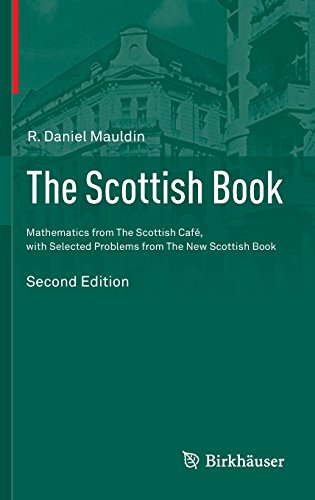

Most ebook files are in PDF format, so you can easily read them using various software such as Foxit Reader or directly on the Google Chrome browser.
Some ebook files are released by publishers in other formats such as .awz, .mobi, .epub, .fb2, etc. You may need to install specific software to read these formats on mobile/PC, such as Calibre.
Please read the tutorial at this link: https://ebookbell.com/faq
We offer FREE conversion to the popular formats you request; however, this may take some time. Therefore, right after payment, please email us, and we will try to provide the service as quickly as possible.
For some exceptional file formats or broken links (if any), please refrain from opening any disputes. Instead, email us first, and we will try to assist within a maximum of 6 hours.
EbookBell Team

0.0
0 reviewsThe second edition of this book updates and expands upon a historically important collection of mathematical problems first published in the United States by Birkhäuser in 1981. These problems serve as a record of the informal discussions held by a group of mathematicians at the Scottish Café in Lwów, Poland, between the two world wars. Many of them were leaders in the development of such areas as functional and real analysis, group theory, measure and set theory, probability, and topology. Finding solutions to the problems they proposed has been ongoing since World War II, with prizes offered in many cases to those who are successful.
In the 35 years since the first edition published, several more problems have been fully or partially solved, but even today many still remain unsolved and several prizes remain unclaimed. In view of this, the editor has gathered new and updated commentaries on the original 193 problems. Some problems are solved for the first time in this edition. Included again in full are transcripts of lectures given by Stanislaw Ulam, Mark Kac, Antoni Zygmund, Paul Erdös, and Andrzej Granas that provide amazing insights into the mathematical environment of Lwów before World War II and the development of The Scottish Book. Also new in this edition are a brief history of the University of Wrocław’s New Scottish Book, created to revive the tradition of the original, and some selected problems from it.
The Scottish Book offers a unique opportunity to communicate with the people and ideas of a time and place that had an enormous influence on the development of mathematics and try their hand on the unsolved problems. Anyone in the general mathematical community with an interest in the history of modern mathematics will find this to be an insightful and fascinating read.